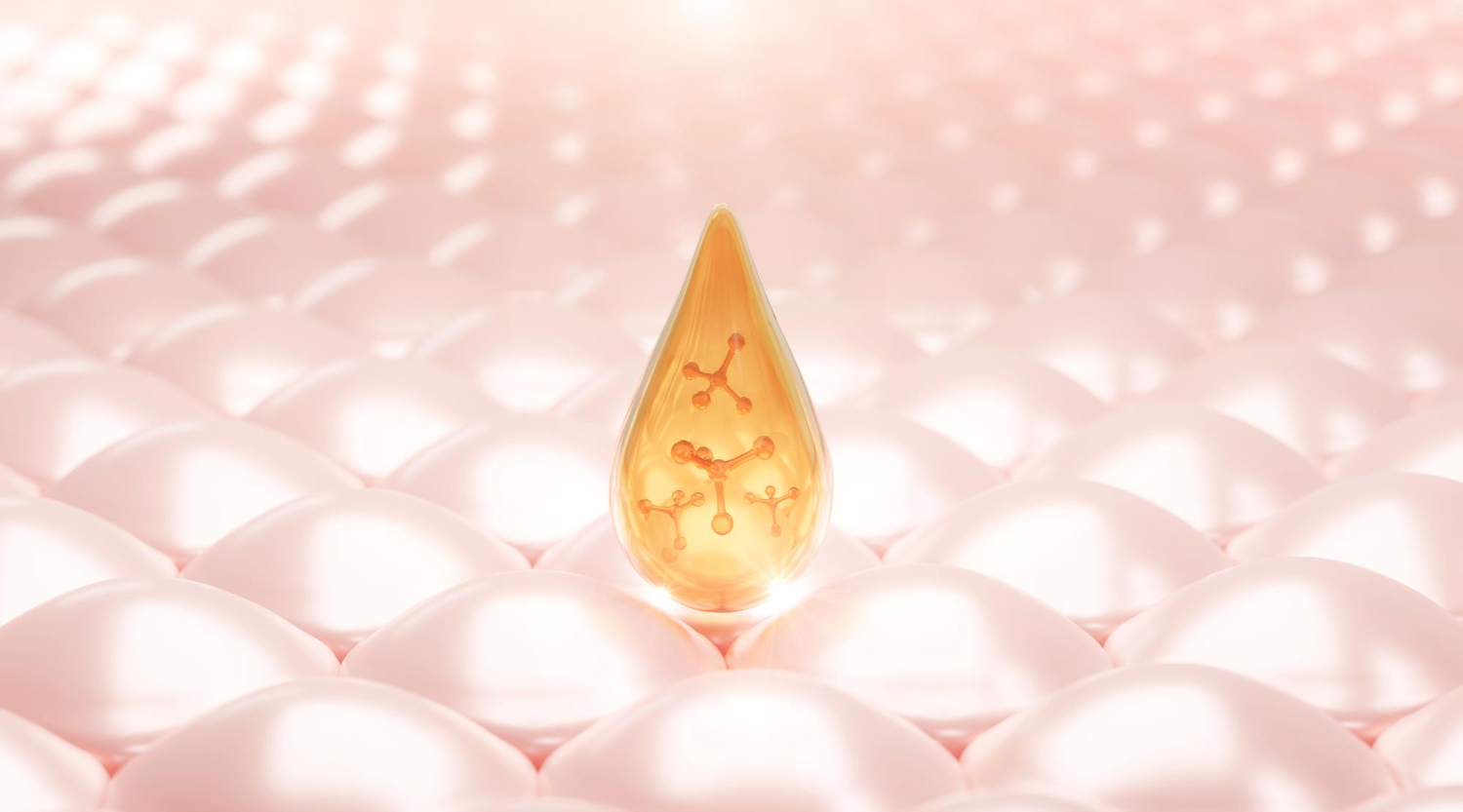
Collagen makes up about 30% of the protein in your body. It plays a crucial role in giving your skin, muscles, bones, and connective tissues their shape and strength.
Collagen is getting all the hype these days, but do you really know what it does for your body? We’re here to break it down for you. From the types of collagen to how it works in your body, plus some treatments to amp up your skin’s collagen game, we’ve got you covered in this blog.
What is Collagen?

Collagen is a vital protein in the human body, serving as a foundational component. It plays a key role in giving structure and strength to our skin, muscles, bones, tendons, and various connective tissues. Collagen is also present in organs, blood vessels, and the intestinal lining.
This essential protein is formed from specific amino acids, including proline, glycine, and hydroxyproline, which combine to create strong protein fibrils in a triple helix structure. Adequate levels of vitamin C, zinc, copper, and manganese are essential to support the production of this critical protein in the body.
3 Primary Types of Collagen and Their Functions
We often think of collagen as just one thing. However, there are actually 28 different types of collagen. But for most of our concerns, we mainly focus on three primary collagen types and their functions.
1. Collagen Type I
Collagen Type I makes up most of the body’s collagen, accounting for up to 90% of it. It’s composed of tightly packed fibres. This collagen type is responsible for providing structure to various parts of the body, such as the skin, bones, tendons, cartilage, connective tissues, and teeth.
Interestingly, natural levels of collagen type I in the body begin to decrease in our twenties. Because collagen type I is abundant in connective tissues, a decrease in its levels can lead to less firm skin, fragile nails, thinning hair, and the development of fine lines and wrinkles.
2. Collagen Type II
Collagen Type II has a different structure, with fibres that are more loosely packed and typically found in elastic cartilage. This type of collagen acts as a cushion for your joints, aiding in their mobility and function. It’s often included in supplements to support the skeletal system. Collagen Type II consists of long, identical chains of amino acids that form a dense network of fibres. This network provides cartilage with the strength and flexibility necessary to withstand mechanical stress and absorb shocks. Adding collagen type II to your body can assist in managing the wear and tear that your joints experience.
3. Collagen Type III
Collagen Type III plays a crucial role in maintaining the structure of muscles, organs, and arteries in the body. It’s the second most abundant type of collagen and is typically present in reticular fibres like those found in the bone marrow.
What are the Different Sources of Collagen?
Collagen can be sourced from various places, and the collagen from each source has unique properties and can be found in different parts of the body.
- Marine collagen is taken from fish bones, skin, and scales. It’s believed to be particularly good for the skin and bones
- Bovine collagen comes from cows and is thought to be helpful for joint health
- Vegetarian or vegan collagen isn’t “true” collagen because it doesn’t come from animals. However, it’s believed to encourage your body to produce its own collagen naturally
- Hydrolysed collagen is collagen that’s been broken down into smaller pieces to make it easier for your body to absorb into your bloodstream
- Gelatin is similar to collagen but not quite the same. It’s made from animal bones, typically by boiling them. However, our bodies can’t directly absorb collagen from gelatin
4 Effective Treatments to Enhance Collagen Production
If you’re seeking treatments to improve your collagen levels, Bodycraft offers a variety of solutions. Through personalised guidance and expert-led procedures, we deliver collagen regeneration services that yield exceptional results.
1. Profhilo Treatment
View this post on Instagram
This injectable treatment primarily consists of hyaluronic acid, a natural skin component that maintains moisture and fullness. Profhilo treatment aims to boost the skin’s production of collagen and elastin, improving skin elasticity, texture, and overall appearance.
2. HIFU
Bodycraft Clinic offers a cutting-edge HIFU treatment that is non-invasive and utilises high-intensity focused ultrasound energy. This advanced procedure precisely targets the deeper layers of the skin, promoting collagen production and tightening the treated area. By harnessing the power of highly focused ultrasound energy, our HIFU treatment stimulates natural collagen growth, resulting in firmer and more rejuvenated skin.
3. Vampire Facial Treatment
Famously referred to as the vampire facial or micro-needling with PRP, this treatment involves injecting platelets derived from a small blood sample onto the face. It enhances collagen production and diminishes signs of ageing, resulting in a more youthful appearance.
4. Morpheus8
View this post on Instagram
Experience the cutting-edge technology of Morpheus8, a revolutionary treatment for collagen production. By combining radiofrequency and microneedling, Morpheus8 stimulates deep layers of the skin, promoting collagen remodelling and tightening. Unveil smoother, firmer, and more youthful-looking skin with this innovative procedure.
For information on Benefits of Collagen read our blog.
The Takeaway
Understanding the diverse types of collagen is the key to achieving timeless beauty. Collagen Types I, II, and III form the foundation for skin, joint, and organ health. Exploring treatments that rejuvenate and stimulate collagen production empowers us to make informed choices. Whether through injectables, facials, or holistic nutrition, the journey to enhanced collagen and radiant skin is within reach. Your journey to healthier, more radiant skin starts here.
Book your appointment with us today, and our team of experts will guide you towards the perfect treatment to address your specific skin concerns.
FAQs
1. Which type of collagen is best?
Collagen Type I is most beneficial for the skin, while Type II supports joints. The “best” type depends on your specific needs.
2. How can I increase my collagen?
Boost collagen through a balanced diet rich in vitamin C, zinc, and copper. Collagen supplements and injectables can also help.
3. What is the best treatment for collagen and how many sessions are required to see the skin-brightening effect?
The best treatment for collagen and the number of sessions needed for visible skin brightening can vary depending on individual factors, such as skin type and condition. Our experts can provide personalised recommendations tailored to your specific needs.
4. At what age should I start taking collagen?
Consider collagen supplements or injectables in your late 20s to early 30s as natural production begins to decline.
5. Is collagen a veg or non-veg?
Collagen is primarily sourced from animals, making it non-vegetarian.
6. What is the best form to take collagen in?
Collagen in powder, injectables or capsule form is highly effective, ensuring easy absorption.